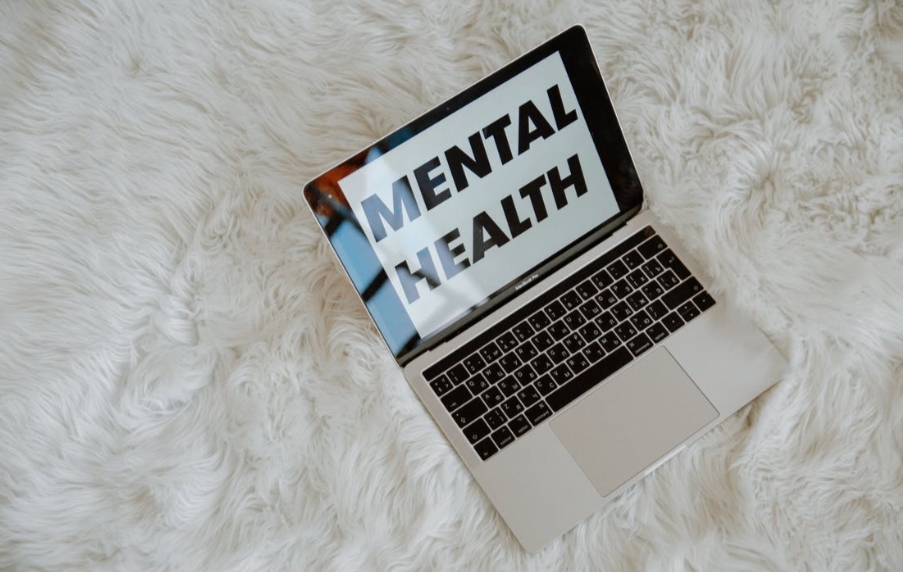The COVID-19 pandemic came as a shock to all of us. From living ordinary lives to suddenly being locked up in our homes was not an easy transition. Children, adults, elderly all had to give up many essential elements of their lives, like physically attending school or running the usual daily chores. And let’s not forget the healthcare workers who left behind their families and put their own lives at stake to help fight this fatal virus.
The pandemic made several alterations to our lifestyles. Still, the one thing it triggered the most was mental health issues.

The unprecedented lockdowns, enforced quarantines, social distancing, closure of schools, work from home situation took a severe toll on many people’s mental health. Stress, anxiety, panic, and uncertainty became a central part of many lives.
Read these six points mentioned below to determine how the pandemic left an adverse effect on our mental well-being.
1. Grief and Loss
Several individuals and families lost their loved ones to this virus. The grief of losing a loved one is heartbreaking, emotionally disturbing, and unimaginable for many. Additionally, people also suffered severely due to job loss or business closures. Whatever the reason behind suffering might be, it is devastating and affects people’s mental health to an alarming extent.
Many psychiatrists informed that the sufferance of grief led to an excessive increase in online therapy and clinical mental health counseling sessions.
2. Trauma
The current pandemic is a considerable traumatic experience. A person does not only undergo trauma after physically witnessing a horrifying incident. Instead, trauma can even occur because of job loss, watching the news about increased cases, or after getting affected with the virus.
Even the frontline healthcare workers are undergoing severe traumatic experiences due to their hectic work schedules. Patient load, unavailability of protective gear, and isolation from family and friends negatively influence their mental health.
3. Teens and Children’s Mental Health At Risk
Adults are not the only ones suffering the significant changes this pandemic is causing. Instead, young children’s behavior and attitude are also changing. Initiation of online schools, not meeting their friends, and staying at home made the children annoyed and irritated.
It increases their sadness and depression, causing difficulties in paying attention and being energetic. To eliminate these behaviors, parents must remain calm, collected, and hopeful. Sharing positive facts about the pandemic with your children helps keep them busy and motivated. Reassurance about things going back to normal soon can be encouraging as well. It is also critical that parents show lower levels of stress and anxiety than their children.
4. Increase In Domestic Violence
A shocking outcome of the pandemic is the increased violence rates. Though a direct comparison between violence and the pandemic is not yet scientifically discovered, reports show a drastic increase in violence against women and girls since the pandemic began. A few studies also claim that violence compounded among people who were already experiencing domestic violence.
Such an increase is mainly the increased amount of time people spend in their homes with abusive parents or partners. Other factors such as unemployment and financial stress can also cause a behavior change leading to aggressiveness.
5. Substance Misuse
Before the pandemic, only one in five U.S. adults reported signs of any mental illness. However, post-pandemic reports show 42% of U.S. residents suffer from either stress, anxiety, or other mental illness.
Substance use is a very concerning issue. When stress, anxiety, and depression spike, people often turn to unconventional coping mechanisms such as consuming dangerous and risky substances. In June 2020, the rate of people using various substances to deal with pandemic stress increased to almost 13%. Social isolation and tension can also increase vulnerability to substance misuse. Consumption of dangerous substances can cause multiple health risks, including a weak immune system.
6. Effect On The Disadvantaged People
Many of us talk about the COVID-19 effects on children and adults. Still, have we ever considered how the pandemic might affect the disadvantaged group of our society?
People with pre-existing health illnesses are at an increased risk of mental disorders due to uncontrollable stress and anxiety levels. Similarly, social isolation can be a traumatic experience for disabled people, causing them immense distress. They can suffer from severe mental health issues, especially the ones residing in nursing homes. One might note some common behavioral changes in elderly and disabled people, such as emotional outbursts, irritability, and disturbed sleep patterns.
Even people with an unstable income are at risk of developing a mental illness.
Conclusion
At this point, it is well-established that the pandemic is increasingly affecting everyone’s mental health. However, the extent of it might differ for each person.
Suppose you want to improve your mental health during this pandemic, then start by limiting the news. Spending too much time reading or listening about the pandemic will only cause you unnecessary tension and panic. Try to follow a routine and make use of technology to communicate with your friends and family regularly. Most importantly, do not hesitate to seek help from a specialist.
